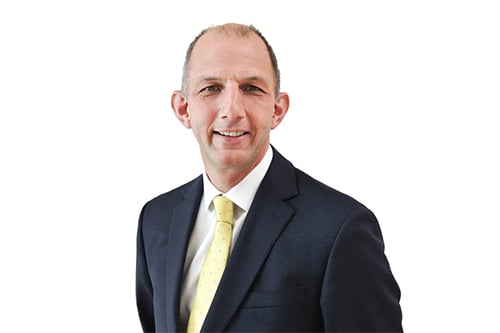

When Markel UK announced its swoop for the freelancer and contractor business of Caunce O’Hara earlier this month, it marked the fourth significant acquisition since Neil Galjaard took the role of divisional managing director at the specialist insurer back in September, 2016. So, is this a sign that the firm is very much on the acquisition trail?
“It’s not about being on the hunt for deals,” Galjaard told Insurance Business, “this is very much a targeted deal. It’s important for us to deliver value in a sector that other people can’t.
“We are now seen as having market leading propositions in care and tech and what we seek to do is grow in specialist sectors organically or through acquisition. We’ve acquired a tax consultancy business, the electrical contractors’ insurance business and a book of business in legal expenses. So, they are specialist acquisitions and quite targeted acquisitions.”
Following on from the deals for EC Insurance Co. Ltd, the combining of Abbey Tax and Accountax to become Markel Tax, as well as the above-mentioned legal expenses book deal, the latest swoop for Manchester-based Caunce O’Hara saw Markel boosted by picking up around 27,000 customers.
“We’ve been doing online professional indemnity insurance for small SMEs for eight years now,” Galjaard explained. “It’s a channel where clearly the customer decides they want to buy in that way.
“It’s a good market and we’re a strong player. We also have strong legal capabilities – and these businesses usually have strong legal and tax needs.
“Caunce is very well known and respected. We already supply their legal expense insurance and we’d been talking about how we can support their tax ability. We thought they were a strong business and that they had a lot to offer in this space.”
Going forward, co-founder Chris Caunce will continue on with the firm for at least the next two years to help oversee the business with Galjaard describing his input as “crucial” – along with that of the rest of the staff in the Manchester office.
“We hope that what will happen [going forward] is we will be able to promote the capabilities we already have,” he said. “It won’t surprise people that IR35 is going through some changes. We have some of the best capability in the country around that – the support of our tax and law firm will be something we promote to their clients and Chris was very positive about that. We would hope that if you’re a member of the team you won’t notice much change – same office, same clients, same branding. We just want to enhance it and continue the growth.”
However, deals such as this and the ongoing strengthening of the Markel Direct brand may raise questions as to where brokers fit in the company’s future. However, Galjaard is insistent that they are not just a part of the business – they are very much the focal point.
“Brokers are our primary channel and will remain so,” he said. “We deal with quite complex situations that require a broker’s advice – care, tech, PI risks. What we are doing is writing those risks in sectors led by the broker. I think what you’ve got here [with the Caunce deal] is a sector of the market that chooses to buy direct – and what we are saying is we can serve that sector too. But we would expect that direct customers will also go on to grow their businesses and potentially engage with brokers as their needs become more complex.
“Right now, they are not the type of client that is a typical broker client – but they may ultimately become so.”
Pointing out that “in the UK we have 430 people and less than 20 serving direct clients,”Galjaard added that brokers have a vital role to play in dealing with SME risk.
“Small business owners want to focus on running their business,” he said. “Some are struggling through the Brexit situation at the moment and the broker’s role is to make sure they are supporting them by understanding the risks of the business as they grow further. The role of the broker is only becoming ever more important to SMEs.”
